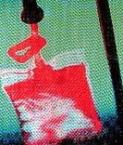Defining contraindications for blood transfusion
Contraindications to blood transfusion include:
- cardiac decompensation at heart disease, myocarditis, myocardiosclerosis;
- bacterial endocarditis;
- hypertension stage 3;
- cerebrovascular circulation;
- thromboembolic disease,
- pulmonary edema;
- acute glomerulonephritis;
- severe hepatic failure;
- general amyloidosis;
- allergic condition;
- asthma.
In assessing contraindications for blood transfusion it is important transfusions and allergic history, information held in the past, blood transfusions and the patient's response to them, as well as the presence of allergic diseases. Identify dangerous group of recipients.
Preparing the patient for blood transfusion
In patients admitted to a surgical hospital, define the blood group and Rh factor.
Then doctors explores of the cardiovascular, respiratory, urinary systems in order to detect contraindications to blood transfusion. For 1-2 days before transfusion produces a complete blood count, before the blood transfusion patient should empty her bladder and intestines. Blood transfusion is best done in the morning on an empty stomach or after a light breakfast.
Choice of method transfusion
When selecting transfusion environment should apply the component in which a patient needs, using blood substitutes.
The main method of blood transfusion - intravenous drop with the use puncture of the saphenous veins. At a massive and lengthy comprehensive transfusion therapy, blood along with the other medium is introduced into the subclavian or external jugular vein. In extreme cases, blood is administered intraarterially.
Evaluation of shelf life preserved blood and blood components for transfusion
Before transfusion determine the suitability of blood for transfusion: take into account the integrity of the packaging, shelf life, violation of the blood storage (possible freezing, overheating). The most expedient to transfuse blood from a shelf life of no more than 5-7 days, as with the extension of shelf-life in the blood occur biochemical and morphological changes that reduce its positive properties. Transfusion of blood components packing frozen blood rapidly heated to a temperature of 38 degrees Celsius.
hide
 Transfusion medicine - is the section of clinical medicine dealing questions transfusion of blood and blood products to person, as well as haemo- and plasma-liquids with curative intent. The subject of research are the various transfusion environment (methods for their preparation, storage and use) and the mechanism of their action on the human body.
Transfusion medicine - is the section of clinical medicine dealing questions transfusion of blood and blood products to person, as well as haemo- and plasma-liquids with curative intent. The subject of research are the various transfusion environment (methods for their preparation, storage and use) and the mechanism of their action on the human body. 






